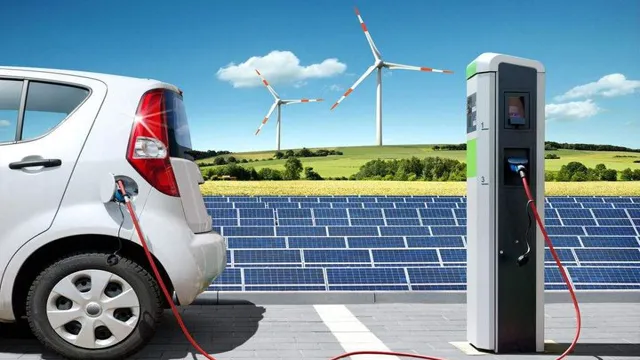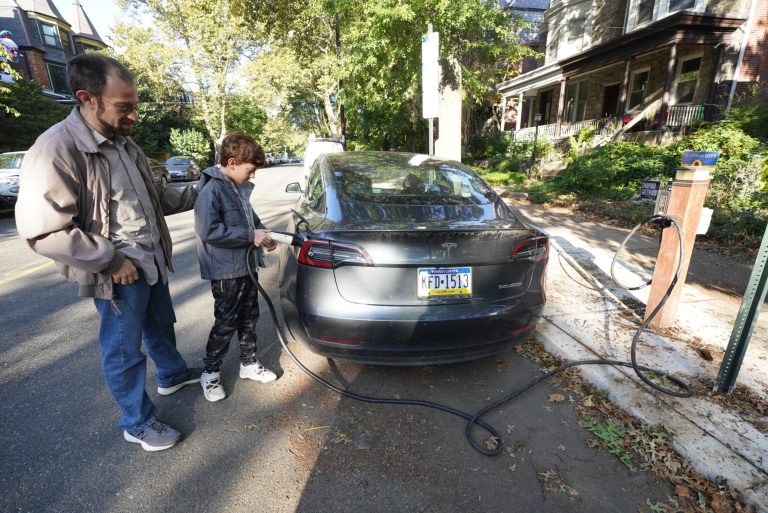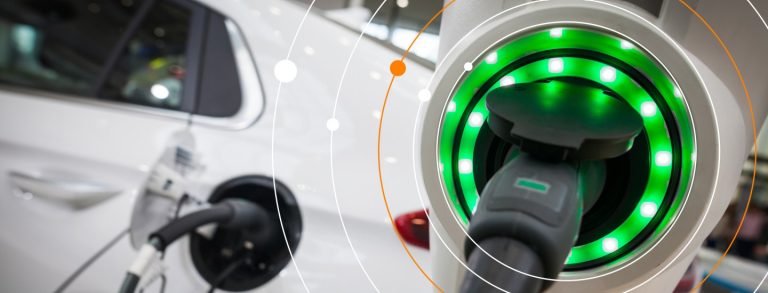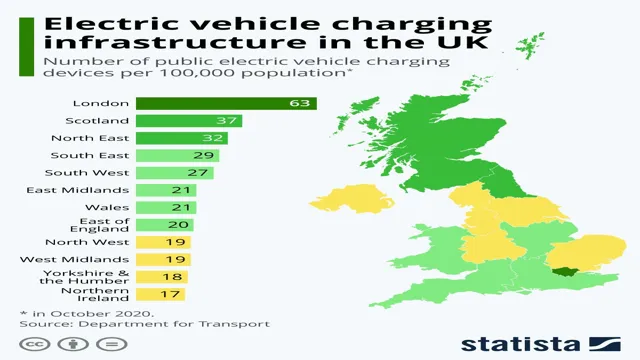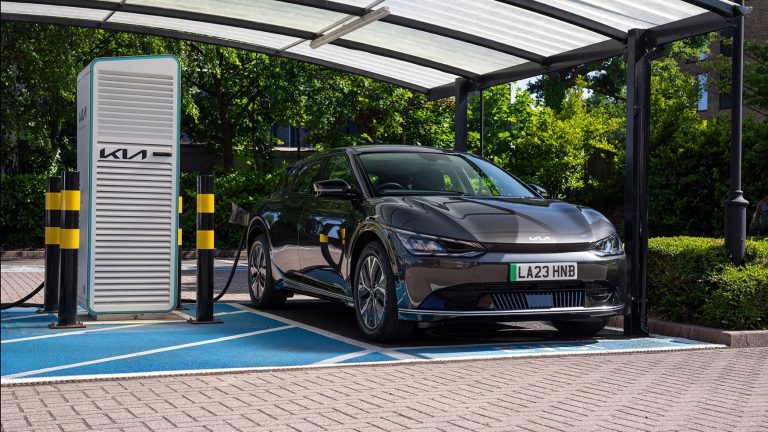Unveiling the Future: The Latest Electric Car Charging Infrastructure Report
While electric cars are becoming increasingly popular, concerns over infrastructure limitations remain. Drivers worry if they will have enough charging station options available in their area, or if they will be able to complete longer road travels without running out of juice. But what is the current state of electric car charging infrastructure? To help answer that question, we turned to the State of Electric Car Charging Infrastructure Report.
This comprehensive report examines the availability of charging stations, the accessibility of charging stations, and the costs associated with EV charging. If you’re an electric car owner, or considering purchasing one, this report will provide valuable insight into the state of charging infrastructure and what you can expect before hitting the road.
Introduction
In our increasingly eco-conscious world, electric cars have become an increasingly popular choice for environmental reasons. However, to drive these sustainable vehicles, an efficient charging infrastructure is crucial. That’s where the electric car charging infrastructure report comes in.
This report examines the current state of electric car charging stations, exploring the challenges faced by providers in terms of installation costs, supply chain issues and the logistics and grid management involved. It also highlights the need for investment and collaboration between the public and private sectors to accelerate the growth of charging infrastructure. Improving the charging station network is a step towards making electric cars more accessible and convenient for drivers and will help move us towards a more sustainable, low-emission future.
What is Electric Car Charging Infrastructure?
Electric Car Charging Infrastructure Electric car charging infrastructure is the network of charging stations and related components designed to support battery electric vehicles (BEVs) and plug-in hybrid electric vehicles (PHEVs). This includes everything from charging stations at homes and businesses to public charging stations located along highways and major roadways. The primary purpose of electric car charging infrastructure is to provide drivers with the ability to charge their vehicles while on the go, thus extending the range and usability of their cars.
With the increasing popularity of electric vehicles and the growth of the charging infrastructure, it is becoming easier and more convenient for people to switch to eco-friendly modes of transportation. Whether you are a homeowner looking to install charging stations in your garage or a transportation company needing to develop a network of charging stations for your fleet of electric vehicles, electric car charging infrastructure can help power the future of transportation.
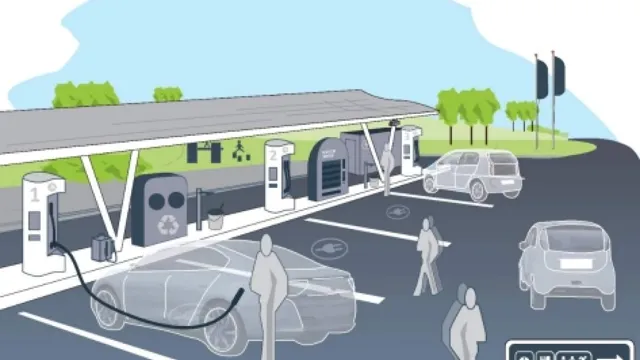
Why is Electric Car Charging Infrastructure Important?
Electric Car Charging Infrastructure Electric car charging infrastructure has become increasingly important in the modern world. With electric cars becoming more prevalent, the need for charging stations has become a top priority for many municipalities, businesses, and individuals. Charging stations provide a convenient and efficient way to recharge electric cars, allowing drivers to travel further without worrying about running out of power.
Additionally, electric car charging infrastructure helps to reduce the world’s carbon footprint by promoting the use of clean, renewable energy sources. As more and more people switch to electric cars, there is a growing need for the development of robust and reliable charging infrastructure that will make it easier for people to adopt this eco-friendly mode of transportation.
Current State of Electric Car Charging Infrastructure
According to the latest electric car charging infrastructure report, there has been a significant increase in the number of public charging stations worldwide, with more than 5 million units installed as of 202 The report also indicates that the adoption of electric vehicles is growing rapidly, and by the end of 2020, there were over 10 million electric cars on the road globally.
Despite this growth, there are still challenges facing the electric car charging infrastructure. One of the main obstacles is the lack of charging stations in rural areas and developing countries. Furthermore, slow charging speeds and incompatible charging standards also hinder the growth of electric vehicles.
However, the report projects that the industry will overcome these challenges as more investment is made in charging infrastructure and technology, making electric cars increasingly accessible and convenient for all drivers.
Statistics on Electric Car Adoption and Charging Stations Availability
The current state of electric car charging infrastructure is rapidly evolving. Electric cars are gaining popularity, and with increased adoption comes the need for more charging stations. According to a recent report, in the United States alone, there are now over 26,000 charging stations with approximately 85,000 charging connectors.
However, there is still a significant gap between the number of gas stations and electric charging stations. As of 2020, there were approximately 150,000 gas stations in the United States compared to only 26,000 charging stations. This highlights a crucial need for increased investment in infrastructure to ensure that people have access to charging stations as electric cars become more commonplace.
As a result, it is essential that government entities and private companies work together to improve the availability and accessibility of electric charging stations.
Barriers to Electric Car Charging Infrastructure Expansion
Electric Car Charging Infrastructure Expansion The world is rapidly transitioning towards electric cars, and the need for efficient electric car charging infrastructure is more prominent than ever before. While many countries have made significant progress in expanding electric car charging networks, there are still several barriers that hinder the expansion of this crucial infrastructure. The most significant challenge is the lack of standardization for charging stations.
Each manufacturer has its own unique charging configuration, making it challenging for charging station companies to provide universal charging solutions. Additionally, the high cost of installing charging stations, particularly in remote areas, is another significant barrier. However, as the demand for electric cars continues to increase, governments and private enterprises are starting to invest in building more charging stations.
With time, it is hoped that these barriers will be overcome, and electric car charging infrastructure expansion will be more efficient and accessible.
Future Predictions for Electric Car Charging Infrastructure
According to the latest electric car charging infrastructure report, we can expect major developments in the way we charge our EVs in the near future. With the rise of fast-charging stations and the introduction of wireless charging technology, drivers can soon say goodbye to long charging times and tangled cords. Smart charging systems that communicate with a vehicle’s battery will allow for more efficient charging and reduced strain on the power grid.
Additionally, renewable energy sources such as solar panels and wind turbines will become increasingly integrated with charging infrastructure, creating more sustainable methods of powering electric vehicles. As the number of EVs on the road continues to grow, we can also expect greater investment in charging networks, including private investment and government initiatives. The future of electric car charging infrastructure is bright, and it’s exciting to think about all the potential advancements that lie ahead.
Expected Growth and Expansion of Electric Car Charging Infrastructure
As electric vehicles become more mainstream, it’s expected that there will be a significant expansion of the charging infrastructure to support this shift. Infrastructure developments such as increased charging station availability and faster charging capabilities are predicted to address what some see as the “range anxiety” of EV owners. Major players in the market, including Tesla, Volkswagen, and BP, are investing in building out their own charging networks, while government incentives are expected to help fund public infrastructure.
As more and more people embrace electric vehicles, we can expect to see continued growth and investment in charging infrastructure to meet the demands of EV users. The future of electric vehicles and charging infrastructure looks incredibly bright, and it’s exciting to think about how this shift will transform the way we drive and interact with the world around us.
Technological Advancements and Innovations in Electric Car Charging
Electric car charging infrastructure The future of electric car charging infrastructure is looking bright with numerous technological advancements and innovations. One of the predictions for the future of electric car charging infrastructure is the development of wireless charging. This technology would allow drivers to charge their electric vehicles without plugging them in, making it more convenient.
Another prediction is the rise of ultra-fast charging stations, which can charge electric cars in just a few minutes. This kind of advancement in charging infrastructure would get rid of the range anxiety the drivers currently experience. Moreover, experts foresee the adaptation of solar panels to charging stations, allowing the infrastructure to generate its power, making it eco-friendly.
It is also expected that the charging stations will provide additional features such as secure parking for electric cars and car sharing services, promoting the use of electric vehicles. While a lot of work is currently undergoing to improve the charging infrastructure, it is predicted that the new model that is more user-friendly will revolutionize the whole concept of electric car charging infrastructure.
Global Electric Car Charging Infrastructure Leaders
According to a recent electric car charging infrastructure report, there are a few global leaders in this rapidly growing industry. Electric vehicle charging infrastructure is becoming more important as EVs become more common around the world, and countries like China are leading the way in developing and installing charging stations. In fact, China has the largest number of electric car chargers in the world, followed by the US and Europe.
However, there are many companies, including ChargePoint, Tesla, and Shell, that are working to expand the infrastructure beyond just one country or region. With more and more people opting for electric cars, we can expect major growth in this industry in the coming years, and companies will need to continue innovation and expansion to keep up with demand.
Top Countries with Robust Electric Car Charging Infrastructure
When it comes to electric cars, having a robust charging infrastructure is crucial to their success. Thankfully, many countries are stepping up to the plate in this regard. The top leaders in global electric car charging infrastructure are China, the United States, and several countries in Europe, including Norway, the Netherlands, and Germany.
China has over 800,000 charging ports, while the United States boasts over 100,000. Meanwhile, Norway has the highest number of public charging points per capita, with one charger for every six electric vehicles on the road. As for Germany, it has committed to rolling out 1 million charging points by 2030.
These countries understand that a strong charging infrastructure is necessary to support the growing popularity of electric cars and are investing heavily in this area. With such a strong foundation in place, the future looks bright for the electric car industry.
Key Global Players in Electric Car Charging Infrastructure Expansion
When it comes to electric car charging infrastructure expansion, there are several key global players to keep an eye on. One of the most prominent is Tesla, known for its Supercharger network that allows drivers to quickly and easily recharge their vehicles. Other major players include ChargePoint, which operates a vast network of charging stations throughout North America and Europe, as well as China’s State Grid Corporation, which has been investing heavily in infrastructure to support the growing popularity of electric vehicles in the region.
Additional players include Enel X, which is expanding its network of charging stations throughout Europe, and EVgo, which operates a network of fast chargers throughout the United States. With these and other companies leading the way in electric car charging infrastructure expansion, the future looks bright for drivers seeking to make the switch to sustainable, eco-friendly transportation.
Conclusion
In conclusion, it’s clear that electric cars are the future of transportation and the development of charging infrastructure is crucial to their widespread adoption. While obstacles remain, such as the need for more charging stations in rural areas and better integration between different charging networks, we can confidently say that the road ahead is bright. As we continue to invest in innovative technologies and sustainable solutions, we’ll be driving towards a cleaner, greener and electrifying future.
So, buckle up and enjoy the ride!
Takeaways and Recommendations for Electric Car Charging Infrastructure Advocates
As electric car usage continues to rise, so does the need for electric car charging infrastructure. Global leaders in this field have made great strides in establishing and expanding these networks. Takeaway lessons from these innovators include developing partnerships with government bodies and manufacturers, utilizing smart technology to manage charge distribution, and focusing on creating a seamless user experience for electric car owners.
Additionally, investing in clean and renewable energy sources such as solar panels and wind turbines to power charging stations is a key strategy for creating a sustainable infrastructure for the future. As electric cars become more mainstream, advocacy for charging infrastructure must become a top priority. Building strong partnerships, investing in innovative technology, and prioritizing sustainability are the keys to building a successful charging infrastructure.
Let’s work together to make this a reality.
FAQs
What is an electric car charging infrastructure report?
An electric car charging infrastructure report is a detailed analysis of the availability, accessibility, and quality of electric vehicle charging stations in a given area or region.
Why is an electric car charging infrastructure report important?
An electric car charging infrastructure report is important because it helps policymakers, businesses, and EV consumers to better understand the current state of EV charging infrastructure and plan for future expansion.
What information is included in an electric car charging infrastructure report?
An electric car charging infrastructure report typically includes maps, charts, and data on the location, number, type, and usage of EV charging stations, as well as an assessment of gaps in coverage and recommendations for improvements.
What are some key challenges in developing a robust electric car charging infrastructure?
Some key challenges in developing a robust electric car charging infrastructure include the high cost of installation, the need for grid upgrades and new permits, the difficulty of coordinating with multiple stakeholders, and uncertainty around future demand and technology.
